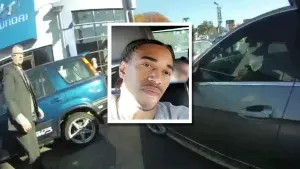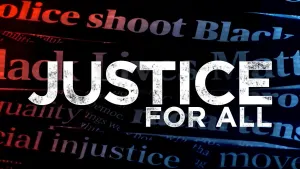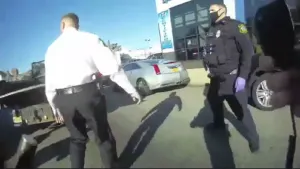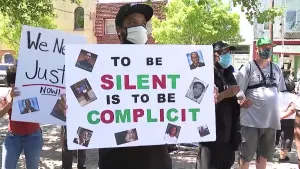More Stories
Racial profiling has roots in New Jersey, including along the New Jersey Turnpike.
New Jersey paid $13 million to four minority men in a racial profiling lawsuit in 2001.
Leroy Jarmaine Grant, Danny Reyes, Keshon Moore, and Rayshawn Brown were targeted and stopped on the highway in 1998 by state troopers John Hogan and James Kenna, who are white. Moments later, three of the minority men were shot multiple times.
Reyes tells News 12’s Brittany Miller that he and his college basketball teammates did not know why they were being pulled over at the time.
"My first reaction was to see how fast Keshon was driving, and he was going right at the speed limit, so I thought [the troopers] were going to look and continue on their way,” Reyes says. “Then they did the opposite. They slowed down. That's when they came behind us and put their lights on and pulled us over."
Reyes says they pulled over and that he next felt a bump as if the cars collided.
EXPANDED COVERAGE: Justice for All
“Ultimately come to find out Keshon didn't put it all the way in park, he put it in reverse, so the bumpers did tap,” he says.
Reyes says that the troopers jumped out of their cruiser, and he next heard gunshots.
“One of the troopers came to my window, and he just breaks the window with his baton, and I tried to show him I wasn't doing anything funny. So I show him my hands and he just cocked his pistol and started firing so that’s when I got shot twice in the arm,” Reyes says.
Reyes says he was shot a total of six times, and two others in the car were shot multiple times.
“Their story was that we tried to run them over. That they were on the floor, fearing for their lives as the car was coming at them and that wasn’t what happened. Their lives were never in danger,” Reyes says.
Reyes says that the officers originally pulled them over for going 74 mph, but he claims that this was a lie.
The case sparked a national outcry against police brutality.
"In our case, there was so much discovery done when it comes to the way that they train troopers in Jersey how to profile minorities in Jersey. It was more than two officers, it was a whole system,” says Reyes.
Troopers Hogan and Kenna pleaded guilty to lesser charges in the shooting in 2002. They admitted that they were trained to target minorities. They lost their jobs as state troopers but avoided any jail time.
As part of the lawsuit settlement, the state did not admit guilt in the shooting.
Reyes says telling his story, producing a series and speaking to youth has helped him get through.
Reyes, Grant, Moore and Brown now run a youth mentor program called J4 Pass to Assist.
More from News 12
3:49

Grand jury declines to file charges against police officers who shot motorist in New Jersey
0:21

New Jersey Supreme Court issues progress report on court system racial disparities
3:50

Shooting of unarmed motorist by Bloomfield police will be investigated by grand jury
21:05

Justice For All Town Hall: Has anything changed since George Floyd was killed by police?
3:18

Justice For All report on shooting leads to discovery of problems with NJ use-of-force database
2:49
